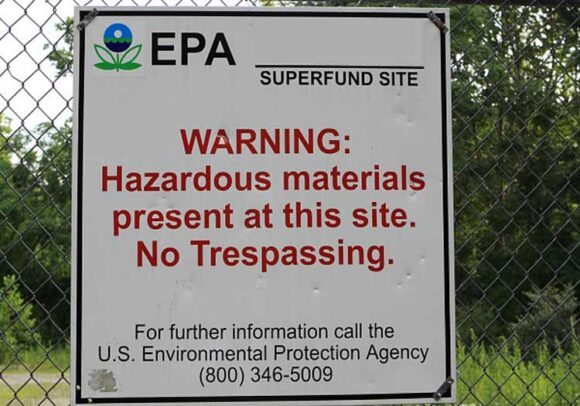The carriers that insured a Charleston fertilizer plant more than 30 years ago are liable for contamination at the site even though the former property owner who bought the policies did not ask their permission to transfer its right to seek coverage, the South Carolina Supreme Court ruled Wednesday.
In a unanimous decision, the high court reversed a county court and the Court of Appeals. It held that the insurers owe coverage to PCS Nitrogen under policies issued to its predecessor Columbia Nitrogen Corp. from 1966 through 1985, at least in theory, and sent the case back to the trial court to sort out other facts.
Continental Casualty Co. and 13 other carriers are on the risk. The insurers argued that the insurance policies required the prior owner of the plant to obtain permission before reassigning its rights, and that there hasn’t been a loss yet because litigation over site cleanup costs has not yet been resolved.
The Supreme Court said it prefers to adopt the “post-loss exception,” which holds that insurer consent is not required for an assignment of liability insurance coverage rights made after a loss.
“An insured’s claim to coverage does not have to be reduced to a sum due or to become due under the policy for the claim to be assignable without insurer consent,” the court said in an opinion written by Justice George C. James Jr. “After an occurrence, the insured possesses a contingent right to coverage, and it is a right that may be assigned without insurer consent.”
A 43-acre property that once held Columbia Nitrogen’s fertilizer plant on the Ashley River in Charleston was designated a Superfund site after a development company, Ashley II, purchased the land in 2003. The developer discovered the soil and groundwater on the site was contaminated by lead and arsenic. Ashley sued PCS and others in 2005 to recover its remediation costs.
In 2013 the US Environmental Protection Agency issued an order designating eight entities, including Ashley II and PCS, as potentially responsible parties. Cleanup costs were estimated at $9 million.
PCS never owned the Charleston site, but had merged with another business that once owned it. After Ashley sued, PCS argued that it wasn’t Columbia Nitrogen’s successor, but the US District Court in Charleston found otherwise. The 4th Circuit Court of Appeals affirmed the ruling.
Accepting defeat, PCS filed suit in Charleston County Circuit Court seeking a declaration that Columbia Nitrogen’s former insurers are obligated to provide coverage for its defense costs and environmental liabilities.
Circuit Judge G. Thomas Cooper Jr. granted summary judgment in favor of the insurers ruling that Columbia had failed to secure the insurers’ consent before transferring its right to seek coverage. The Court of Appeals affirmed.
In its opinion, the South Carolina Supreme Court said that most courts that have heard the question ruled that an assignment of insurance benefits after a loss has already occurred does not require the insurer’s consent, even if the policy contains a consent clause, because the purpose of consent is to prevent any increase in the insurer’s risk.
The loss that spawned PCS’ lawsuit occurred before Columbia Nitrogen sold its fertilizer plant in 1985, the high court said. The court also rejected the insurer’s argument that the transfer increased its risk, saying those costs were “fixed” at the time the pollutants were discharged.
“We are also persuaded by PCS’s public policy argument that relieving respondents of their contractual duty to provide coverage would give respondents a windfall,” the opinion says.
The Supreme Court reversed the lower court rulings and remanded the case to the Charleston County court.
That won’t end the litigation. The insurers also argue that the policies issued to Columbia Nitrogen exclude coverage for damages caused by pollution, a question that hasn’t yet been resolved. The Supreme Court said the insurers can also pursue their argument on remand that PCS’ actions after the pollution was discovered increased its risks when the case is taken up by the trial court again.
Was this article valuable?
Here are more articles you may enjoy.


 Bayer to Make $10.5 Billion Push to Settle Roundup Cases
Bayer to Make $10.5 Billion Push to Settle Roundup Cases  AI Claim Assistant Now Taking Auto Damage Claims Calls at Travelers
AI Claim Assistant Now Taking Auto Damage Claims Calls at Travelers  Stellantis Weighs Using China EV Tech for Affordable Cars
Stellantis Weighs Using China EV Tech for Affordable Cars  Asbestos Lawsuits Prompt Vanderbilt Minerals to File Bankruptcy
Asbestos Lawsuits Prompt Vanderbilt Minerals to File Bankruptcy 